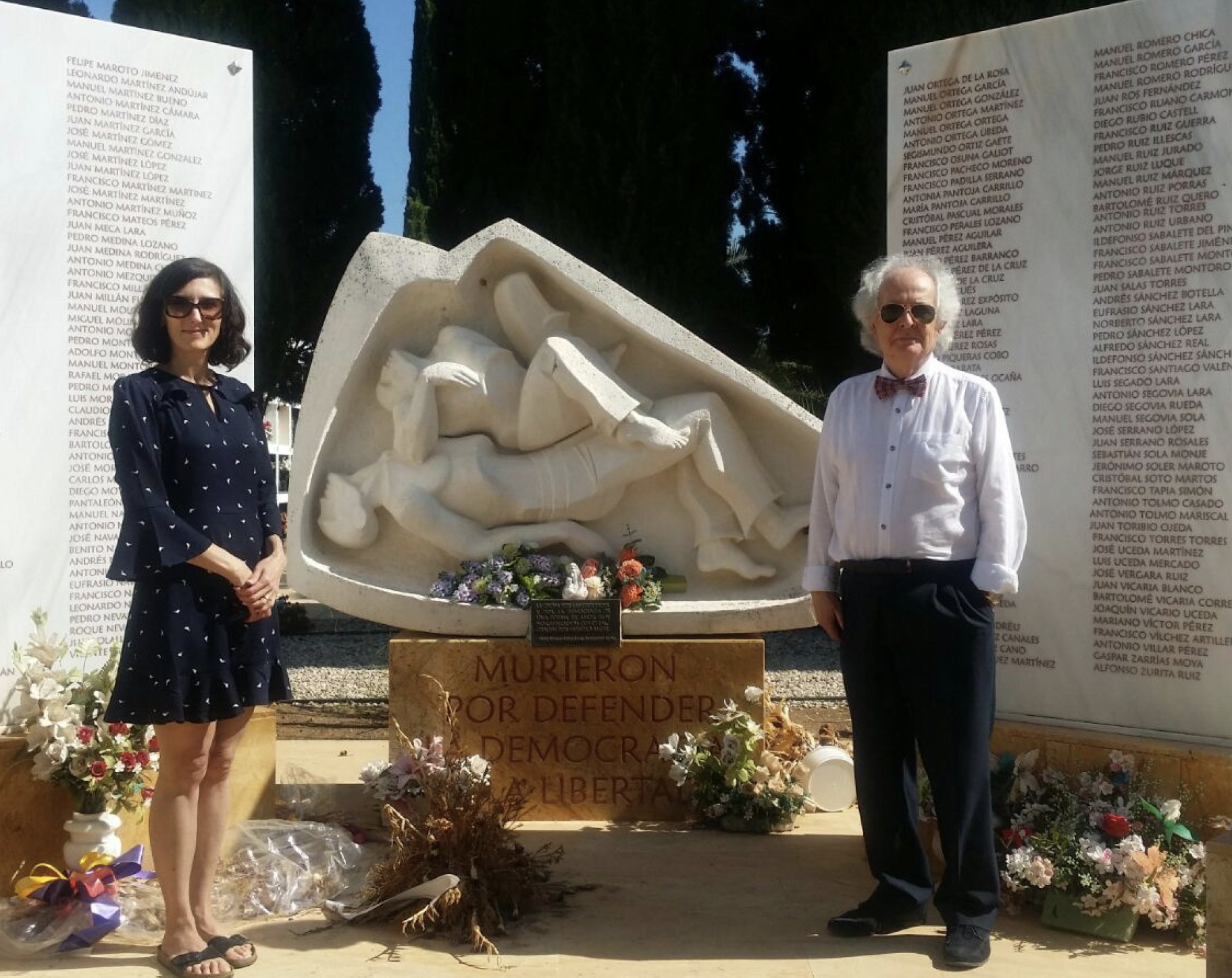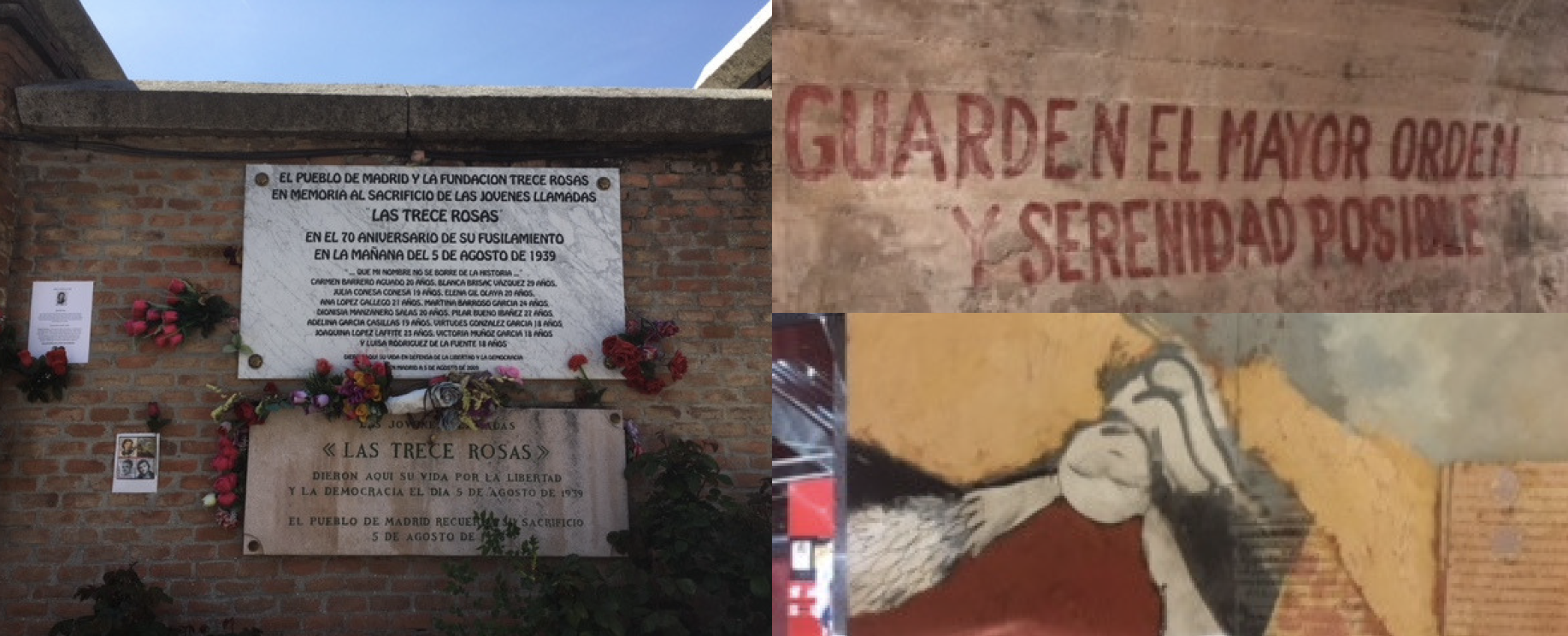
Dr. Maureen Tobin Stanley (Hispanic Studies) researches trauma and marginalization as related to the dictatorship and repression following the Spanish Civil War. Her current work focuses on “the role of memory and the facing of trauma as a means of recovering justice in recent Spanish narrative, testimony and film, as well as memorials, exhibits and other popular cultural manifestations that refer to the primary cultural products studied.”
Tobin Stanley makes a distinction between memorials and monuments, with memorials serving a collective justice-centered past and monuments serving the glorification victors in their efforts to craft a narrative. While both can be placed in public spaces, the first asks viewers to remember by eliciting an emotional response and often encouraging silent contemplation. The second desires for viewers to be impressed by the grand display of accomplishment flaunted in the structure, thus inspiring vocal approval.
In studying memorials and monuments, Tobin Stanley seeks to recover memory from the past and understand the experience of the repressed. She asserts that “You cannot have justice without memory.” As such, her research seeks to right a wrong. In looking at cultural artifacts, she hopes to understand and reveal what justice is within a given situation and engage in dialogue about recovering memory from the events that took place. Part of that process is asking: how does the artifact tell a story?
She explains, “Spain continues to face the fact that its inheritance is trauma. While both the so called two Spains were ravaged by war and families were fractured, the defeated were prohibited from acknowledging the persecution and reprisals, the cleansing and cruelty that the victors—with impunity— waged upon them. For the victim of injustice, to not articulate the victimization, to be blamed for his or her own suffering and to absolve the agent of the suffering of accountability signifies a secondary or perhaps exponential victimization...While the nationalists viewed themselves as being on the right side, entitled and human, the defeated were viewed in exactly opposite terms: inhuman and entitled to nothing, not even the right to be remembered.”
As a key example for her research, Tobin Stanley points to the Valley of the Fallen, a grand fascist monument located near Madrid built with the forced labor of the defeated cum political prisoners. In addition to a basilica on site that was built by order of the fascist dictator Francisco Franco to consecrate him, over 30,000 dead are buried in what is considered Spain's largest mass grave site within the national park on the grounds.

"Tobin Stanley writes, “In response to the Franco Regime’s ‘reign of terror’ (with its ubiquitous mass graves and proliferation of makeshift jails that led scholars to claim that ‘All of Spain was a prison’), and in light of the 2007 Law of Historical Memory and the grass roots Association for the Recovery of Historical Memory, Spain’s traumatic past continues to be a gaping wound. As past injustice haunts the present, testimonials, novels, films and memorials revisit political incarceration, torture and execution.” She explores how the contemporary cultural corpus constitutes a phenomenon: a supplemental historiographical counter-narrative that underscores empathy and vindicates the defeated.
Ultimately, Tobin Stanley is collecting her findings in a book project: Justice Through Memory. She has presented various chapters at conferences. Tobin Stanley’s research works toward social justice by vindicating the defeated who had been erased from history by the genocidal victors. Additionally, she notes that trauma is universal, and genocide and persecution become possible when a collective Other is deemed less than human. Through empathy and intersubjective understanding, those previously dehumanized are vindicated.